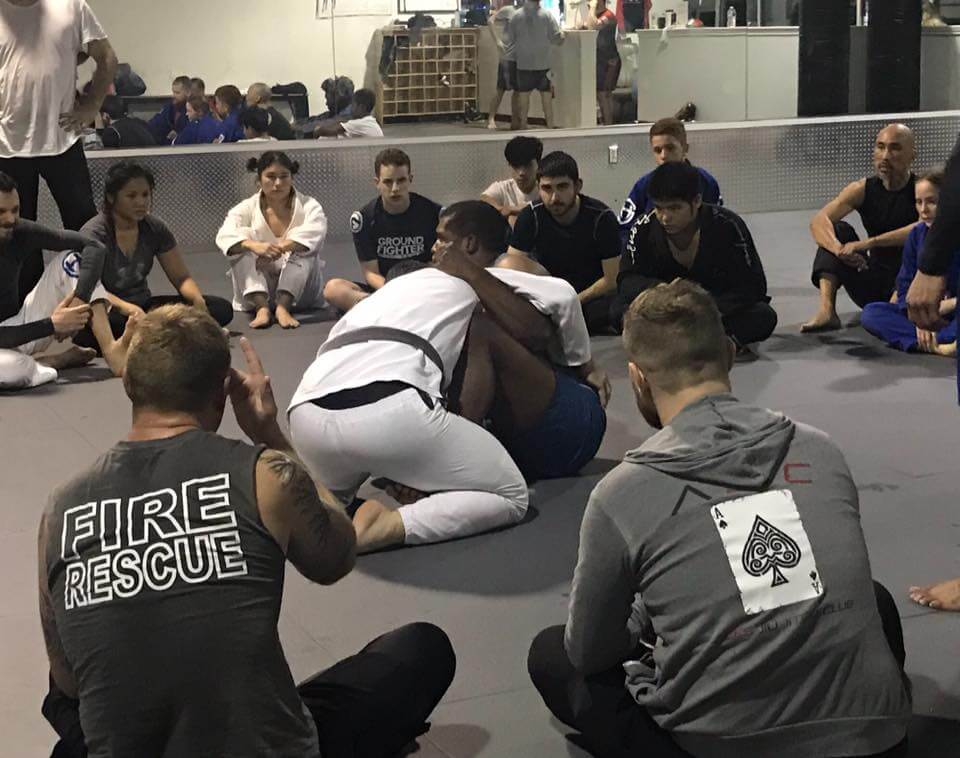Very often, we see people of similar athletic ability, physical attributes and natural grappling instincts progress at different speeds on the mat. This has less to do with the individual and more to do with their methods in training. There are some specific things you can do right now, right away to boost your mat time and make it more productive.
Here are 5 ways you can start to be smarter about your jiu-jitsu training today:
- Chain your drills. If you’re going to do a movement over and over again, add a secondary and even a tertiary movement to it. For example: if you’re drilling sweeps, drill a sweep that lands in you in your training partner’s guard, pass that guard and execute a submission. It’ll add an extra couple of second to your cycle time for each side of the drill, but long term it’ll both improve other areas of your game while at the same time building coordination in the transitions. Rather than doing a single movement repeatedly pair it with other movements, and vary your pairings depending on the day.
- Carefully choose your training partners. Every training partner will provide advantages and disadvantages. For example: someone much smaller and much weaker will be harder to control in certain positions simply because of the size differential. Someone much bigger and stronger will be harder to control in OTHER positions. Every body type has an advantage and disadvantage on the mat, figure these out and start playing to your partners’ strengths. Also,every gym has a few people who only roll at one speed: FAST and HARD. Often these people are avoided, but there’s something to be said for experiencing full aggression and power, similarly people who only like to flow allow you to work on other areas of your game. Choosing your partners and using their attributes and preferences will make your time more effective.
- Learn to play the meta-game. In jiu-jitsu there are games within games, within games within games. Instead of focusing on “bigger picture” training and just taking whatever your partners give you, focus on imposing a specific aspect of a specific aspect of the game. For example: if you’re going to work on your leg locks, focus on getting to a specific leg entanglement and explore which leglocks are available there. This will make you a lot more dangerous if you wind up in those positions. Often this is a good use for training partners that are not rolling at full intensity, see line item #2.
- Train to meld your offense with your defense (and vice versa.) Learning to attack while being attacked and to handle being attacked while attacking is an often neglected skill on the mat that if practiced on a regular basis will give you better attacking AND defending skills. So many attacks can be found in the midst of being attacked. Attacking sometimes involves off balancing oneself and becoming more vulnerable, one of the less developed skills throughout the jiu-jitsu world is learning to recognize and capitalize on the vulnerabilities exposed while being attacked, and learning to protect those same vulnerabilities while attacking.
- Ask questions. Specifically ask specific questions and both have your instructor do the technique to you and feel you doing the technique. Very often there are subtleties to techniques that require a better depth of understanding. Learning to ask questions and to ask the RIGHT questions is a skill in and of itself. Rather than focusing on trying to do a technique by yourself just from watching it happen, try to understand the mechanisms by which techniques work, this will help you apply principles across many different techniques and situations.
The majority of people who train do not use their time intelligently and that’s okay. Not everyone does jiu-jitsu with the intention of competing, many just do it for fun an exercise. There are, however, a lot of people who get frustrated at lack of progress and this list is a way to enjoy faster results. Of course there are many ways to speed up progress and everyone is not the same but if you follow these guidelines you’ll inevitably see results. What are some ways YOU try to be smarter about your training?

Emil Fischer is a Jiu-jitsu Black Belt and BJJ competitor training under Pablo Angel Castro III at Strong Style MMA in Cleveland Ohio. An avid writer and competitor, Emil has amassed an extensive competition record. Most notably, Emil is a 2 time gold medalist at the IBJJF No Gi Pans, and has a submission victory record of 5-1 at Fight To Win Pro which includes purple belt no-gi light heavyweight championship
Emil’s sponsors are Impact Mouthguards, Cleveland Cryo, The Terphouse, Meerkatsu, Eddys on Coventry and Nottarookie. He is a Ludwig Van and Vanguard Kimono brand ambassador.
